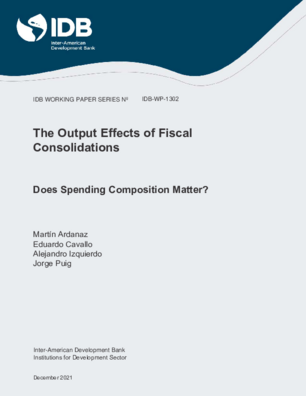The Output Effects of Fiscal Consolidations: Does Spending Composition Matter?
Date
Dec 2021
Summary
This paper studies whether changes in the composition of public spending affect the macroeconomic consequences of fiscal consolidations. Based on a sample of 44 developing countries and 26 advanced economies during 1980-2019, results show that while fiscal consolidations tend to be on average, contractionary, the size of the output fall depends on the behavior of public investment vis-a-vis public consumption during the fiscal adjustment, with heterogeneous responses growing over time. When public investment is penalized relative to public consumption and thus, its share in public expenditures decreases, a 1 percent of GDP consolidation reduces output by 0.7 percent within three years of the fiscal shock. In contrast, safeguarding public investment from budget cuts vis-a-vis public consumption can neutralize the contractionary effects of fiscal adjustments on impact, and can even spur output growth over the medium term. The component of GDP that mostly drives the heterogeneity between both types of adjustments is private investment. The results hold up to a number of robustness tests, including alternative identification strategies of fiscal shocks. The findings have policy implications for the design of fiscal adjustment strategies to protect economic growth as countries recover from the coronavirus pandemic.




